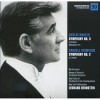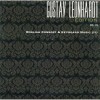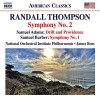传记
Randall Thompson (April 21, 1899 – July 9, 1984) was an American composer, particularly noted for his choral works.
He attended Harvard University, became assistant professor of music and choir director at Wellesley College, and received a doctorate in music from the University of Rochester's Eastman School of Music. He went on to teach at the Curtis Institute of Music (serving as its Director 1941/1942), at the University of Virginia, and at Harvard University. He is particularly noted for his choral works. He was an honorary member of the Rho Tau chapter of Phi Mu Alpha Sinfonia Fraternity at Appalachian State University.
Thompson composed three symphonies and numerous vocal works including Americana, The Testament of Freedom, Frostiana, and The Peaceable Kingdom, inspired by Edward Hicks's painting. His most popular and recognizable choral work is his anthem, Alleluia, commissioned by Serge Koussevitzky for the opening of the Berkshire Music Center at Tanglewood. He also wrote the operas Solomon and Balkis and The Nativity According to St. Luke.
Americana, a song cycle, is written in a 20th Century musical art style known as "News Items" -- compositions that parody newspaper layout and content, or whose lyrics are lifted from media of the day.[1] The lyrics are lifted from the "Americana" section of H.L. Mencken's American Mercury magazine, which would reprint quotes and stories from U.S. publications.[2] The song cycle's texts come from such publications as the Seattle, Washington, Post-Intelligencer, the Little Rock, Arkansas, Gazette, and a leaflet issued by the National Women's Christian Temperance Union.[3]
Leonard Bernstein was one of Thompson's students both at Harvard and at Curtis, according to his own testimony in a speech he gave at Curtis Institute's 75th Anniversary Banquet. Thompson's other notable students include Samuel Adler, Leo Kraft, Juan Orrego-Salas, John Davison, Thomas Beveridge, Charles Edward Hamm, George Lynn, William P. Perry, Christopher King, Joel Cohen, Frederic Rzewski, and David Borden.
In honor of Thompson's vast influence on male choral music, on May 2, 1964 he became the first recipient of the prestigious University of Pennsylvania Glee Club Award of Merit.[4] Established in 1964, this award sought "to bring a declaration of appreciation to an individual each year that has made a significant contribution to the world of music and helped to create a climate in which our talents may find valid expression." He was also a recipient of Yale University's Sanford Medal.









